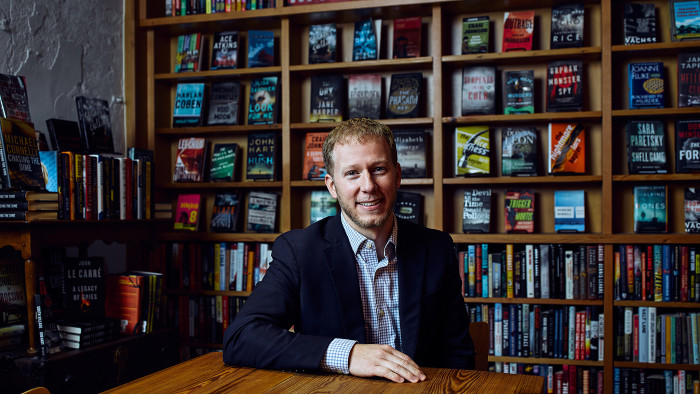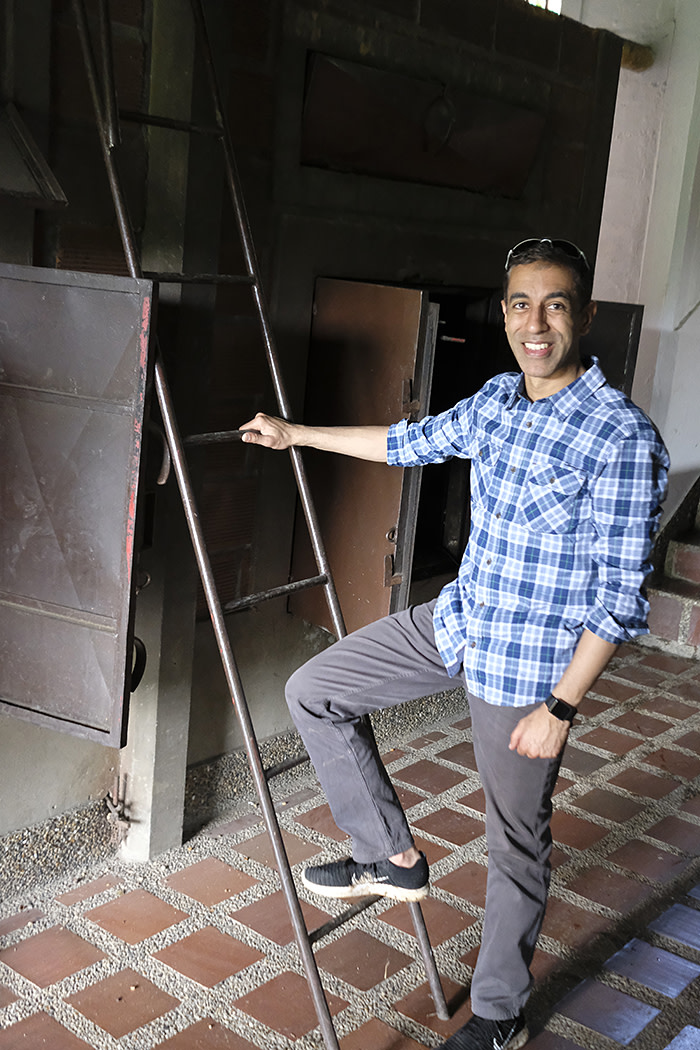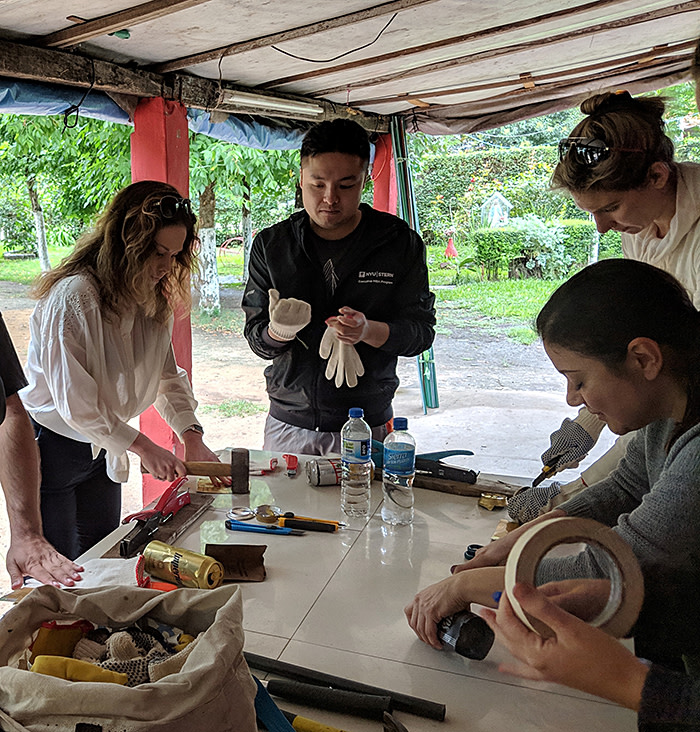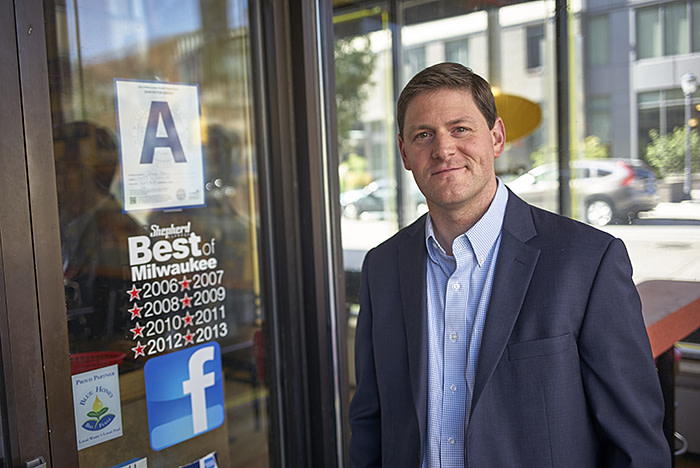Community projects are a win-win for EMBA students and society

Roula Khalaf, Editor of the FT, selects her favourite stories in this weekly newsletter.
As Michael McCullough neared the end of his two-year executive MBA at MIT Sloan School of Management in 2015, he had expected his final project to be focused on a global business challenge. To his surprise, however, he and his cohort were told they would be working on a project with a local community group.
The organisation was More Than Words, a Boston-based social enterprise that sells books while helping disadvantaged young people, such as those in the foster care system or who are homeless, build job skills and improve their lives. It was the first time the school had tried this approach. “Congratulations, you’re the guinea pigs,” McCullough recalls being told.
The programme has become so popular among course participants — particularly given the growing desire of business students to make a social impact — that MIT Sloan now promotes the community projects as one of the main benefits of its EMBA curriculum.
Other schools are starting to follow suit. The idea is still relatively new among EMBA programmes, but schools are including projects where students work as consultants in local organisations, helping with everything from improving efficiency and service delivery to revenue generation.

What these schools have realised is that community projects do more than enrich course content — they also attract students. “It’s one of the things we talk about when we are recruiting for our EMBA,” says Adam Wickersham, director of the EMBA at the University of Wisconsin’s Lubar School of Business in Milwaukee, which runs a similar programme. Its projects are a core part of the Lubar EMBA. “About 25 per cent of a student’s grade is on how successfully they establish this project,” says Wickersham.
The chance to work on a community project was one factor that drew Andrew Lochowicz to the Lubar School. “There were obviously other benefits,” says Lochowicz, who embarked on his EMBA in 2015. “But out of the programmes I looked at there wasn’t an opportunity like this built into the curriculum — and at Lubar it is.”
He and his team worked with Milwaukee’s health department to develop an algorithm-based restaurant-grading system designed to improve customer insight into sanitation and reduce food-borne illnesses. “The health department has a high number of priorities,” he says. “We were a bit of a spark plug, providing extra bandwidth to move this forward.”
At MIT Sloan, McCullough and his team were tasked with improving More Than Words’ pop-up shops. “This organisation was growing rapidly when we were brought in,” he explains. “They were facing challenges of resource allocation and where to focus.” The students’ work included training young people in the sales process and market research, and redesigning the stands so they could be stocked with top-selling books.

The programme allowed McCullough to acquire new experiences and contribute to the local community. “I was so excited to get out there and put to work some of the skills I’d learnt,” he says. “This was the part of the programme where I could make an impact in a short amount of time.”
Lochowicz had a similar experience. “It’s great to apply the things you’re learning in the classroom in real life, and by doing so, be able to help the community,” he says. “It’s a perfect match of opportunity.”
Not all the community projects on offer at EMBA programmes are local, however. For his global study tour, Bryan Tran Lu, an EMBA student at New York University Stern School of Business, volunteered with his classmates to build sustainable water heaters for low-income communities in Argentina.
Sachin Nagrani, who recently graduated from Georgetown University’s McDonough School of Business in Washington DC, went to Colombia to help former Farc rebels market their coffee to global supply chains.
Working with coffee farmers might seem unrelated to Nagrani’s current role at a digital healthcare start-up, but he took away important lessons about being attuned to business problems — a skill he applies to his new venture. “We learnt from them that the ideas we might get from textbooks may not be executable, given other constraints,” he says.

“It is easy to start focusing on the coffee or the medical care on a technical level and looking at spreadsheets to make business decisions, but if you don’t have a fundamental understanding of your customers and how they work, you are not going to succeed.”
Students working on programmes abroad cite similar benefits to those focused on domestic projects: practical experience and learning about the challenges and aspirations of local communities. “It was a very big change from sitting in a corporate lab because you get hands-on experience,” says Lu.
Moreover, the kinds of skills students acquire on these community projects are often different from those gained from working on a global business challenge. “There is degree of complexity that arises when there is a social mission to the project,” says Bridget Akinc, a senior MIT lecturer and chief executive of Boston-based non-profit Building Impact, which helps find organisations and projects for the MIT Sloan EMBA. “The factors you include and the stakeholders you talk to are very different.”
Working with community organisations prompted some students to question their assumptions. McCullough was surprised by how much More Than Words achieved with so little. “These folks really run everything on a shoestring budget,” he says. “It forced us to temper any recommendations we came up with.”
Local projects have an added advantage in that they enable both the school and students to build long-term relationships in the area where they are based. “Our university was set up to give back to the community so this is a way we are able to do that,” says Wickersham.
McCullough, who has worked at General Electric for 17 years, found that he could continue working with More Than Words from afar and was asked to join the social enterprise’s board, when he moved to Boston with his work.
For Lochowicz, who still lives in Milwaukee, the connection to his community project takes a different form: eating at some of the restaurants that use the grading system he helped develop. “It is really exciting to walk on the street and see the A grades popping up,” he says. “It makes you feel good to be part of something.”
Comments